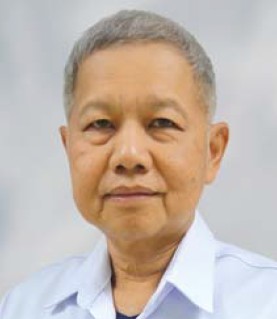Reversible Stress-induced Cardiomyopathy (Takotsubo) Mimics Acute Anterior Wall ST Segment Elevation Myocardial Infarction: A Case Report with Review of Literature
Main Article Content
Abstract
Transient global amnesia (TGA) is characterized by an attack of temporary anterogradeamnesia without other focal neurological defi cits. Characteristic magnetic resonance imaging (MRI) fi ndings include small, punctate, unilateral or bilateral diffusion restriction in the lateral aspect of the hippocampus, which mostly occurs within 48 hours after symptoms onset. The outcome of TGA is usually excellent. The pathophysiology of TGA remains uncertain, but recent evidence suggests that this disorder may result from the inability to generate new memory in the hippocampus due to vulnerability of CA-1 neurons to metabolic stress.
Article Details

This work is licensed under a Creative Commons Attribution-NonCommercial-NoDerivatives 4.0 International License.
This is an open access article distributed under the terms of the Creative Commons Attribution Licence, which permits unrestricted use, distribution, and reproduction in any medium, provided the original work is properly cited.
References
2. Tsuchihashi K, Ueshima K, Uchida T, et al. Transient left ventricular apical ballooning without coronary artery stenosis: a novel heart syndrome mimicking acute myocardial infarction. Angina Pectoris-Myocardial Infarction Investigations in Japan. J Am Coll Cardiol 2001;38:11-8.
3. Bybee KA, Kara T, Prasad A, et al. Systematic review: transient left ventricular apical ballooning: a syndrome that mimics ST-segment elevation myocardial infarction. Ann Intern Med 2004;141:858-65.
4. Sharkey SW, Lesser JR, Zenovich AG, et al. Acute and reversible cardiomyopathy provoked by stress in women from the United States. Circulation 2005;111:472-9.
5. Akashi YJ, Goldstein DS, Barbaro G, et al. Takotsubo cardiomyopathy: a new form of acute, reversible heart failure. Circulation 2008;118:2754-62.
6. Lapanun W. Stress-induced cardiomyopathy in Veerakul G, Kositchaiwat J (eds): 7R Ways to reduce mortality in acute coronary syndrome patients, Srinakorn design printing, January 2014 (ISBN 978-616-348-612-7):197-203.
7. Templin C, Ghadri JR, Diekmann J,et al. Clinical Features and Outcomes of Takotsubo (Stress) Cardiomyopathy. N Engl J Med 2015;373:929-38.
8. Konsuge M, Ebina T, Hibi K, et al. Simple and acurate electrographic criteria to differentiate Takotsubo cardio- myopathy from anterior acute myocardial infarction. JACC 2010;55:2514-7.
9. Bybee KA, Prasad A. Stress-related cardiomyopathy syndromes. Circulation 2008;118:397-409.
10. Dote K, Sato H, Uchinda T, Ishihara M. Myocardial stunning due to simultaneous multivessel coronary spasms: a review of 5 cases. J Cardiol 1991:21;203-14.
11. Haghi D, Suselbeck T, Wolpert C. Severe Multivessel Coronary Vasospasm and Left Ventricular Ballooning Syndrome. Circ Cardiovasc Interv 2009;2:268-9.
12. Kurisu S, Inoue I, Kawagoe T, et al. Myocardial perfusion and fatty acid metabolism in patients with tako-tsubo-like left ventricular dysfunction. J Am Coll Cardiol 2003; 41:743-8.
13. Bybee KA, Murphy J, Wright RS, et al. Acute impairment of regional myocardial glucose utilization in the apical ballooning (Takotsubo) syndrome. J Nuc Cardiol 2006; 13:244-50.
14. Quezado ZN, Keiser HR, Parker MM. Reversible myocardial depression after massive catecholamine release from a pheo-chromocytoma. Crit Care Med 1992;20:549–51.
15. Park JH, Kang SJ, Song JK, et al. Left ventricular apical ballooning due to severe physical stress in patients admitted to the medical ICU. Chest 2005;128:296-302.
16. Lee VH, Connolly HM, Fulgham JR, et al. Tako-tsubo cardiomyopathy in aneurysmal subarachnoidal hemor- rhage: an underappreciated ventricular dysfunction. J Neurosurg 2006; 105:264-70.
17. Yoshimura S, Toyoda K, Ohara T, et al. Takotsubo cardio- myopathy in acute ischemic stroke. Ann Neurol 2008;64:547-54.
18. Riera M, Llompart-Pou JA, Carrillo A, et al. Head injury and inverted Takotsubo cardiomyopathy. J Trauma 2010; 68:E13-15.
19. Summers MR, Lennon RJ, Prasad A. Pre-morbid psychi- atric and cardiovascular diseases in apical ballooning syndrome (tako-tsubo/stress induced cardiomyopathy): potential predisposing factors? J Am Coll Cardiol 2010;55:700-1.
20. Sharp RP, Welch EB, Takotsubo cardiomyopathy as a complication of electro-convulsive therapy. Ann Pharma- cother 2011;45:1559-65.
21. Banki N, Kopelnik A, Tung P, et al. Prospective analysis of prevalence, distribution and rate of recovery of left ventricular systolic dysfunction in patients with sub- arachnoid hemorrhage. J Neurosurg 2006;105:15-20.
22. Wittstein IS, Thiemann DR, Lima JAC, et al. Neurohor- moral features of myocardial stunning due to sudden emotional stress. N Engl J Med 2005;352:539-48.
23. Cherian J, Kothari S, Angelis D, et al. Atypical takotsubo cardiomyopathy: dobutamine-precipitated apical ballooning with left ventricular outflow tract obstruction. Tex Heart Inst J 2008;35:73-5
24. Samuels MA. The brain-heart connection. Circulation 2007;116;77-84.
25. Ueyama T, Senba E, Kasamatsu K, et al. Molecular mechanism of emotional stress-induced and catecholamine- induced heart attack. J Cardiovasc Pharmacol 2003;41 Suppl 1:S115–8.


